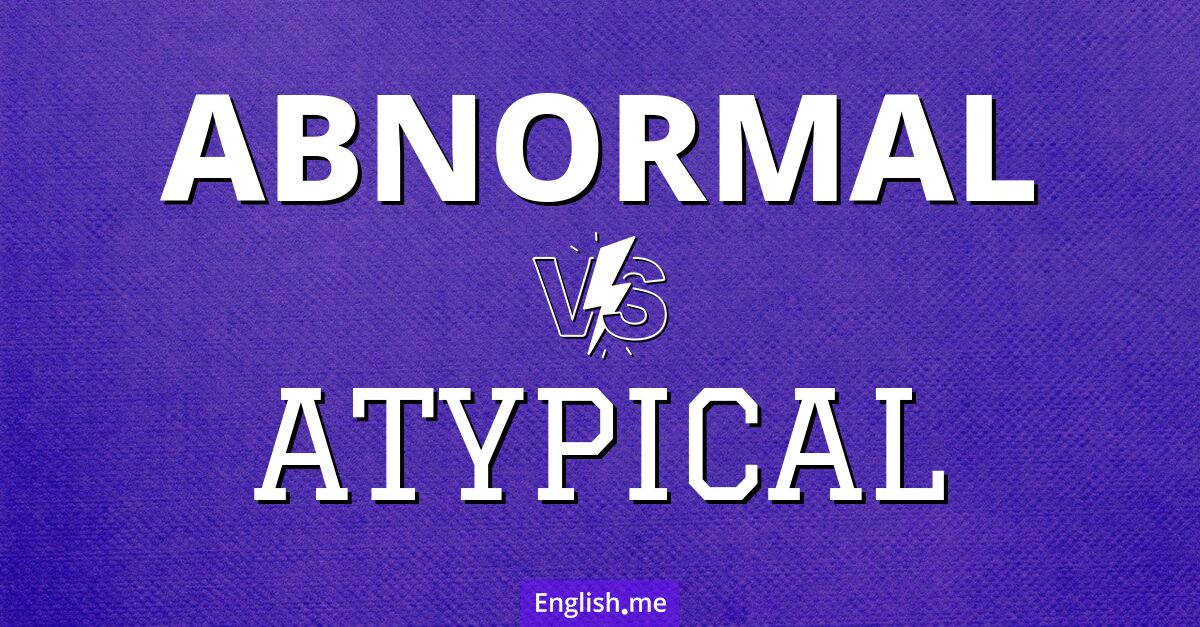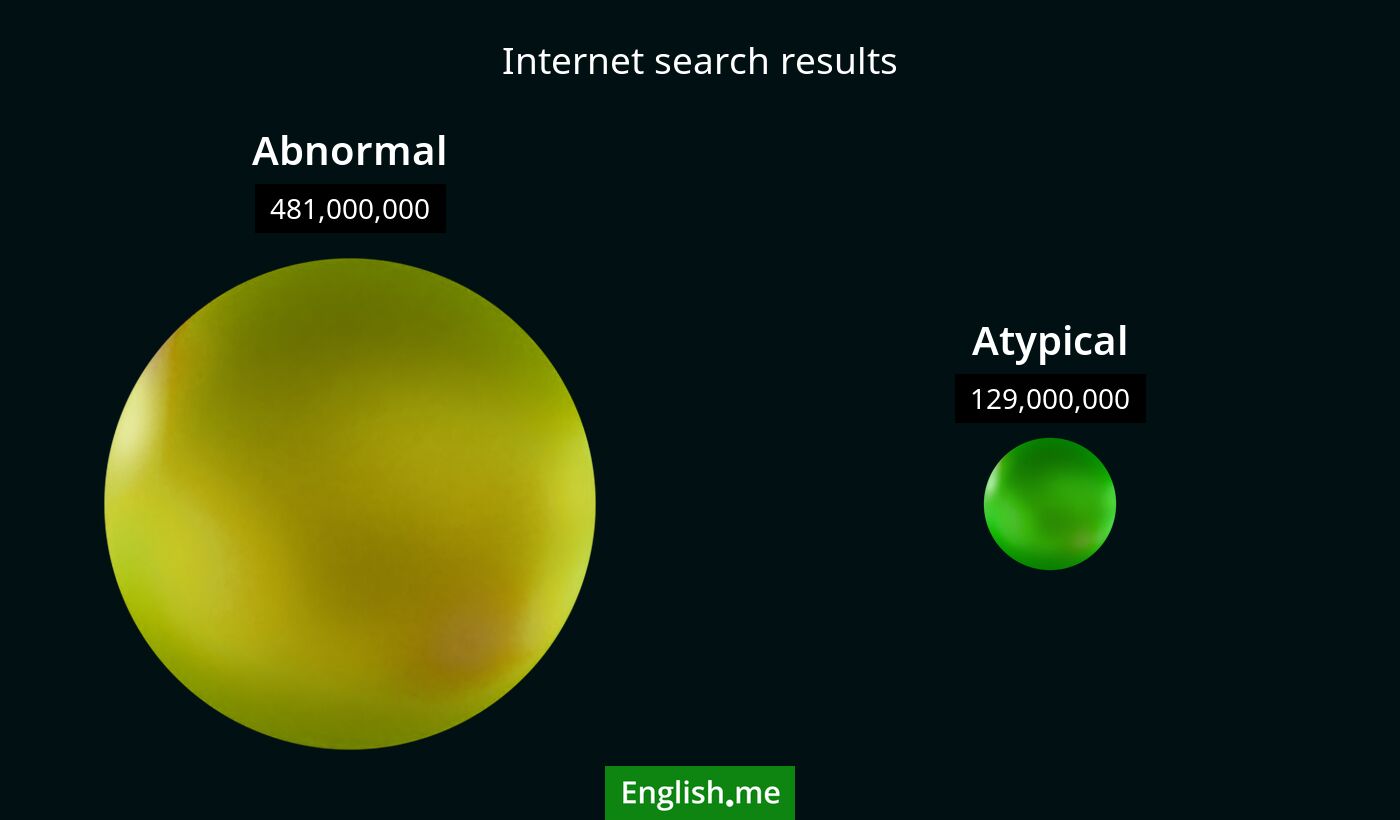Exploring "abnormal" vs "atypical": nuances in uncommon
Reviewed and edited by  Anwar Kareem 01/11/2024, 14:08
Anwar Kareem 01/11/2024, 14:08
English.me team member

 What is similar?
What is similar?
Both "abnormal" and "atypical" describe something that deviates from the norm or is not standard, usual, or expected.
 What is different?
What is different?
While both words indicate deviation from the norm, "abnormal" often implies a stronger sense of deviation and may suggest something is problematic or undesirable. "Atypical" is more neutral and simply suggests being unusual or not typical without necessarily having a negative connotation.
 Which one is more common?
Which one is more common?

 Examples of usage
Examples of usage
Abnormal- The patient's abnormal behavior raised concerns among the medical staff.
- Scientists were puzzled by the abnormal weather patterns this year.
- His test results showed some abnormal levels that required further investigation.
- It was an atypical meeting for the team, as it was held outside the office.
- Her solution to the problem was creative and atypical, unlike any they had seen before.
- Finding such an artifact in this location is considered atypical by experts.

 English
English español
español française
française italiano
italiano deutsche
deutsche 日本語
日本語 polski
polski česky
česky svenska
svenska Türkçe
Türkçe Nederlands
Nederlands